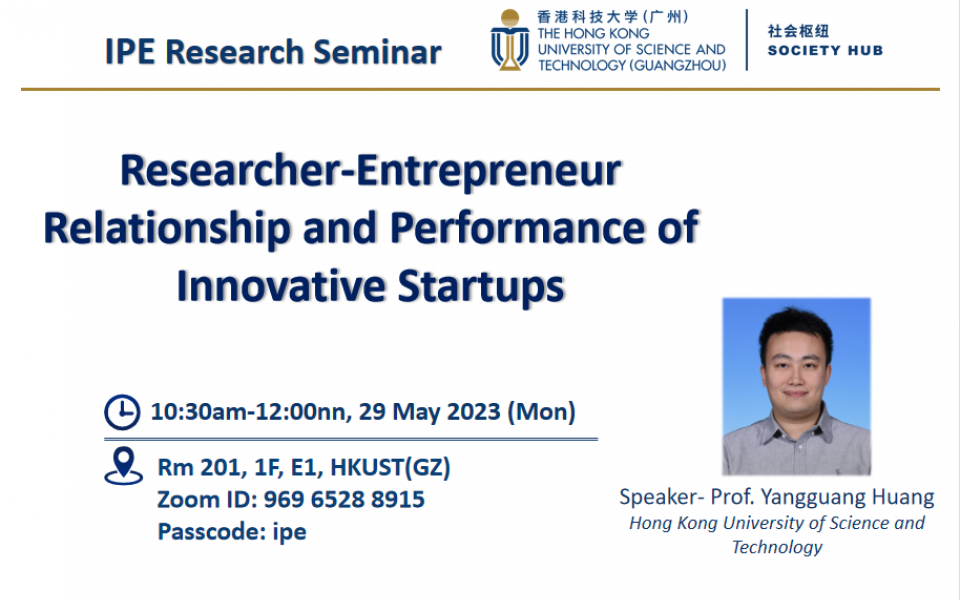IPE Thrust Research Seminar | Researcher-Entrepreneur Relationship and Performance of Innovative Startups
Supporting the below United Nations Sustainable Development Goals:支持以下聯合國可持續發展目標:支持以下联合国可持续发展目标:
Researcher-Entrepreneur Relationship and Performance of Innovative Startups
Abstract
We study the researcher-entrepreneur relationship and its implications for startup performance. Innovative startups not only generate profit from the product market but also value from knowledge spillover. Many governments compensate R&D activities in the form of grants, subsidies, patent license fees, etc. These policies are Pigouvian subsidies that narrow the gap between social and private returns of innovation. We find that because the researcher has a stronger bargaining power in the joint venture, R&D subsidies to knowledge may not increase the researcher's effort. Instead, these subsidies induce the entrepreneur to over-supply his effort, and the outcome can be worse than that under laissez-faire. Our findings offer insights into the design of a policy portfolio that fixes both external market failures and internal frictions within innovative startups. The conventional Pigouvian subsidies to innovation need to be complemented with policies on startup governance and the labor market of entrepreneurs.
Yangguang (Sunny) Huang is an Assistant Professor of Economics at the Hong Kong University of Science and Technology. His research areas are Industrial Organization and Applied Microeconomics. His research projects tackle problems in auctions, procurement, corruption, financial development, digital economy, online markets, and innovation policy. He has published papers in Management Science, International Economic Review, Games and Economic Behavior, and European Economic Review.
